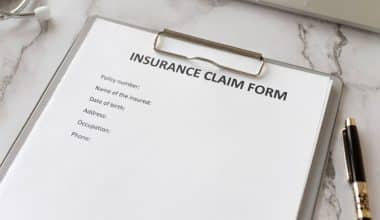Subrogation claims can be intricate, so it is important for individuals to be well-informed and prepared in order to protect their rights. To effectively challenge subrogation claims and lessen their impact on your financial well-being, it is crucial to have a comprehensive understanding of their intricacies. In this article, you will learn about the insurance subrogation claim for property damage and how to deal with insurance subrogation. Read on!
What Is Subrogation?
Subrogation refers to the ability of one party to make demands on behalf of another party. In the context of insurance companies, this refers to a situation where an individual suffers injury in an accident and another person or group assumes responsibility for covering the costs of the harm or injury caused by the party at fault.
In addition, subrogation is a legal process in which a third party acts as a substitute for the injured party. A subrogating insurance company does not have a higher legal standing than the party it represents. In reality, it cannot provide any additional compensation beyond what it has already paid to the injured party.
What is a Subrogation Claim?
When you file an insurance claim for property damage, the insurance company will cover the expenses required to restore your property to its original state. This includes either repairing the damage or replacing any items that have been damaged. For instance, in the event of a minor car accident, the insurance company will cover the expenses associated with repairing your vehicle. In the event of a significant collision, the insurance company may deem your vehicle a total loss and provide you with funds to replace it. Insurance companies are obligated to pay claims, which means they have to spend money. To recover these costs, one option available to them is to file a claim against the party responsible for the property damage.
A subrogation claim occurs when an insurance company seeks to recover its costs by filing a claim against an at-fault third party. The legal principles underlying subrogation claims are logical, as they allow insurance companies to recover the expenses incurred in defending and settling a claim if another party is responsible for the covered damages. However, there are instances where insurance companies may file subrogation claims in bad faith. Insincere subrogation claims can further burden you financially when you are already facing challenging circumstances. In other words, if an insurance company has filed a subrogation claim for damages to property against you, it is important to contact a lawyer right away.
Subrogation Claim for Property Damage
It is reasonable to anticipate that your insurance company will provide coverage for those losses when a person or event damages your home, business, private vehicle, or other property. That is the reason why we pay for insurance, after all. However, if you are responsible for the damage or if it is uncertain who is at fault, the insurance company may seek reimbursement from you to cover the cost of the claim payout.
A subrogation claim occurs when an insurance company seeks to recover its payout. These claims can result in significant financial costs for you. Challenging a subrogation claim for property damage can be difficult. You are facing insurance companies that possess extensive financial and legal resources, which you are unlikely to be able to match. However, by seeking assistance from a skilled lawyer specializing in property damage subrogation claims, you significantly enhance your likelihood of successfully proving your case and defending against the insurance companies.
Furthermore, if an insurance company has filed a subrogation claim against you for property damage, hiring a competent property damage attorney can help you effectively defend yourself against their claim. Handling a subrogation claim can be intimidating and overwhelming, but enlisting the help of a skilled attorney can greatly simplify the process and alleviate some of the stress.
How to Deal with Insurance Subrogation
In order to fight subrogation, an insurance company must notify the party deemed responsible and provide them with the opportunity to contest the claim. In these times, bargaining may be defined as a mutual exchange of concessions and compromises. However, it is best to be prepared to make reasonable concessions while also pushing for a just and equitable settlement. In the event of an automobile accident, it is crucial to start the process by filing a car accident claim and then engaging in subrogation claim negotiations. Individuals can increase their chances of obtaining a favorable outcome in their subrogation claim by following these procedural principles and taking a strategic approach to the negotiation process below:
#1. Document Evidence
One important thing to do before fighting a subrogation claim is to carefully note down every piece of evidence that goes with the event. This includes medical papers, police reports, statements from witnesses, and anything else that is important. Keeping detailed records can help figure out how bad the damage is and who is guilty. This means that the more evidence you have, the better you are at negotiations. Also, keep track of all the conversations you have with insurance companies and anyone else involved.
#2. Ascertain Liability
In subrogation cases, proving liability is very important. Your lawyer will look into what happened, study the laws that apply, and build a strong case that makes the person who was at fault responsible. It’s also important to know who is responsible for the losses before starting to negotiate. Look over the details of what happened carefully and gather any proof that supports your point of view. If more than one person is involved, it may be necessary to figure out how much fault each person has. Being aware of your responsibility will help you talk to the insurance company in a strong way and make a strong case.
#3. Challenge the Claimed Compensation
It’s possible for insurers to overstate the extent of property damage in order to maximize their subrogation recovery. If you are unable to have the insurance company’s subrogation claim against you dropped, you may still be able to negotiate a lower settlement amount by proving that the insurer undervalued the damages.
#4. Subrogation Waiver
Negotiating directly with the property owner can help you avoid subrogation claims if the owner of the property agrees to a subrogation waiver and the insurance plan allows it.
#5. Technical Violations of Subrogation Claims
Insurance companies need to satisfy certain legal requirements before they may file a subrogation claim. If you have legal representation, you may be able to dispute these requirements and have your claim rejected. An insurer who has not paid the policyholder for a legitimate claim cannot make a subrogation claim.
#6. Negotiate With Insurance Firms
Insurance companies know how to keep payouts as low as possible. Nevertheless, having a personal lawyer by your side will protect you from being ripped off during talks. They will use their knowledge of the law and the particulars of your case to achieve the best result possible.
What Is a Waiver of Subrogation?
A waiver of subrogation is a contractual agreement that prohibits the insurer from pursuing legal action against the driver responsible for the accident.
What Happens if You Don’t Pay a Subrogation Claim?
If you don’t pay a claim, the insurance company will keep sending you bills to get the money back. Another time, they might sue you. There is a subrogation waiver that can help you avoid having to go after the victim’s insurance company. There is a different page that talks about why an insurance company would agree to a waiver. But if they are fighting you for subrogation after a car accident, it’s not likely that the insurance company gave up its right to do so.
Property Damages That Could Result in a Subrogation Claim
Subrogation claims can be made for many kinds of property damage. Here are some of the most common varieties:
#1. Damage Caused by Floodwaters
Many people who own their own homes or run their own businesses purchase flood insurance in addition to their regular property insurance. When someone experiences flood damage and subrogation comes into play, the numerous policies can make the legal position more confusing.
#2. Wind Damage
Damage to buildings is often the result of the high winds that accompany a hurricane, tornado, or other severe weather system. A tree falling on a building is an example of indirect damage. In either situation, the insurance company may file a subrogation claim against you if they determine that you were somewhat responsible for the loss.
#3. Fire Damage
Damage from fire and smoke can be extensive, sometimes to the point where the owner simply cannot afford to have the building repaired. The insurance company may file a subrogation claim to get their money back if they can prove that you or someone else caused the fire.
#4. Damage Caused by Water
Snow, ice, and rain can cause leaks, bacteria, and other types of structural damage. Insurance companies may seek compensation for their repair costs because of the high cost of this type of damage.
#5. Automobile Accidents
It’s not cheap to fix or replace a wrecked vehicle. In states with fault-based auto insurance or after particularly serious accidents in no-fault states, insurance companies file subrogation claims to recover the cost of claim payouts from the at-fault driver.
How Often Is Subrogation Successful?
The recovery rate should be approximately 85–90% when considering factors such as comparative negligence and inappropriate referrals. Adjusters must ensure that they accurately identify subrogation, assess comparative negligence, and pursue only what they are entitled to.
Can I Ignore a Subrogation Letter?
Failure to respond to the subrogation letter may result in the continued receipt of additional subrogation letters. There may come a time when the insurance company decides to initiate legal action against you. If it is determined that you are responsible for the accident, the court will probably issue a judgment against you.
How Do You Negotiate a Subrogation Claim?
When an insurance company pursues subrogation, it is required to provide notice to the responsible party and offer them a chance to dispute the claim. Negotiation in this scenario involves a process of mutual exchange. It is important to be willing to make fair compromises while still promoting an equitable solution.
What Happens If Subrogation Fails?
If the insurance provider does not pursue subrogation, you have the option to independently sue the at-fault party in order to recover the amount of your deductible. On average, your involvement in the subrogation process is low and primarily administrative.
What Is the Proof of Subrogation?
In order to be complete, your subrogation file should include all the information needed to prove liability and losses. It is very important to be able to show who is at fault. There should be proof and information you’ve gathered, like police reports or comments from witnesses.
Do Insurance Companies Waive Subrogation?
A waiver of subrogation is a clause in a contract that says a covered person does not want their insurance company to go after a negligent third party for damages. A waiver of the subrogation guarantee usually costs more than the base premium.
Why Would an Insurance Company Choose to Subrogate?
Subrogation keeps you and your insurance company from having to pay for losses that weren’t your fault. It happens a lot with home, health, and car insurance. It lets your insurance company go after the person who caused the damage to get back the money they paid out for a claim that wasn’t your fault.
References
- forbes.com
- dolmanlaw.com
- wkw.com
- millerandzois.com
We Also Recommend the Following
- BUILDER’S RISK INSURANCE: Definition, Cover & Best Services
- SAME DAY CAR INSURANCE: How It Works & to Get It
- DEDUCTIBLE CAR INSURANCE: What Is It & How Does It Work?
- IS FLORIDA A NO-FAULT STATE: What Does That Mean?
- FLORIDA NO-FAULT LAW: All You Need To Know
- Best Homeowners Insurance in Minnesota for 2023






